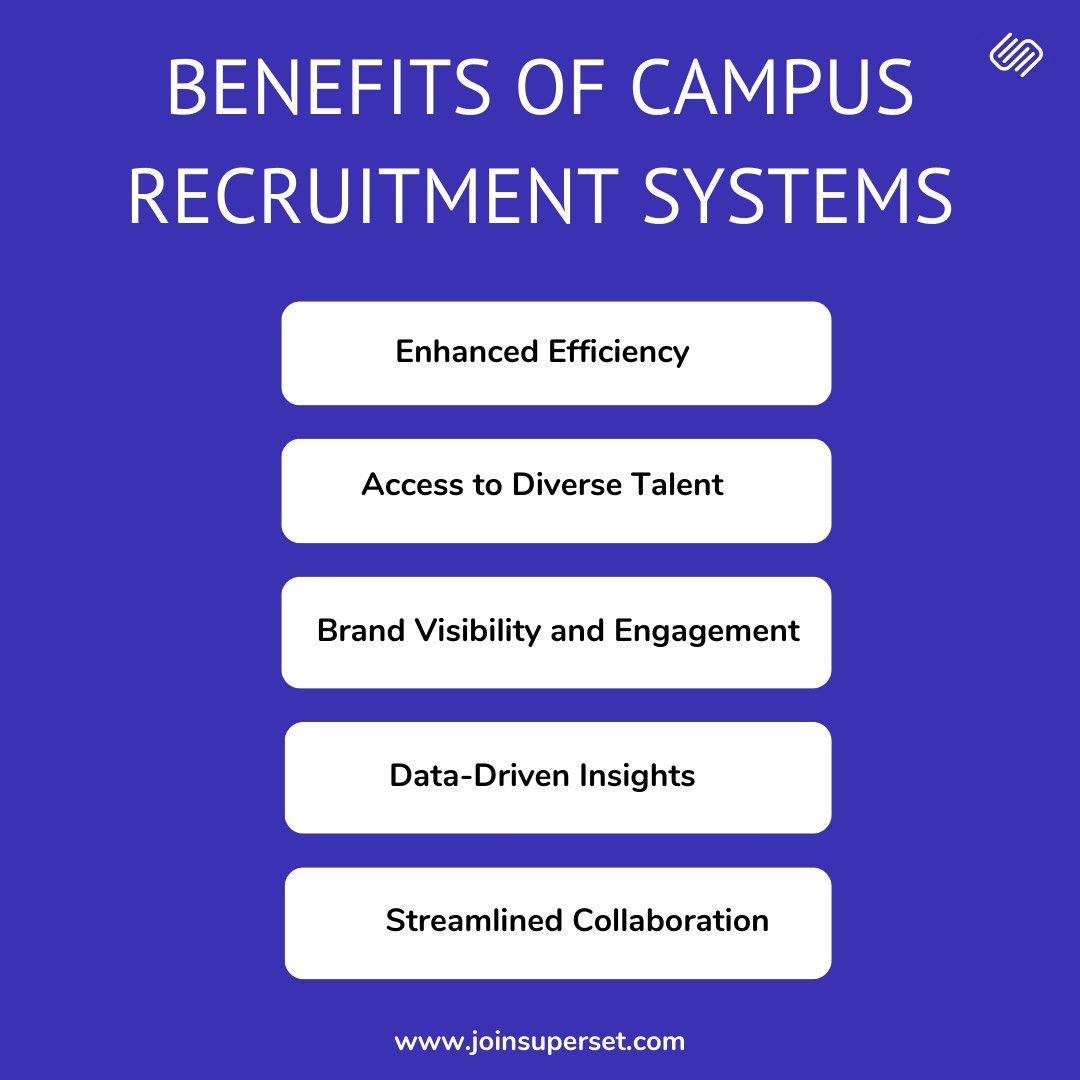In the ever-evolving realm of talent acquisition, the symbiotic relationship between educational institutions and corporate entities has never been more crucial. At the heart of this symbiosis lie campus recruitment systems, serving as the linchpin that connects aspiring graduates with promising career opportunities. As organizations vie for the cream of the crop straight out of colleges and universities, grasping the inner workings of these systems is not just beneficial but imperative. In this insightful exploration, we unravel the intricacies of campus recruitment systems, unravelling their significance, mechanics, and the plethora of advantages they bestow upon organizations seeking to fortify their talent pipelines.
What is a Campus Recruitment System?
A campus recruitment system is a structured platform or software designed to streamline the process of hiring candidates directly from educational institutions such as colleges and universities. These systems facilitate the entire recruitment lifecycle, from posting job openings and scheduling interviews to managing candidate applications and conducting assessments.
At its core, a campus recruitment system acts as a centralized hub where employers can connect with potential candidates, establish brand presence on campuses, and efficiently manage the campus hiring process. Through the use of technology, these systems automate repetitive tasks, optimize communication channels, and provide valuable insights into recruitment metrics.
What is the Need for a Campus Recruitment System?
The need for campus recruitment systems stems from the evolving dynamics of the job market and the increasing demand for skilled talent. With businesses vying for the best and brightest minds, tapping into the pool of fresh graduates offers a strategic advantage. However, the traditional methods of campus hiring, such as career fairs and on-campus interviews, often lack efficiency and scalability.
Enter campus recruitment systems, which serve as a modern solution to address these challenges. By digitizing the campus recruitment process, organizations can reach a broader audience of potential candidates, overcome geographical barriers, and maintain a consistent employer brand across multiple campuses. Moreover, these systems enable recruiters to identify and engage with talent proactively, fostering long-term relationships with educational institutions.
Customization and Scalability
Customization and scalability are indispensable facets of campus recruitment systems, pivotal in ensuring adaptability to the ever-evolving landscape of talent acquisition. As organizations navigate through dynamic market conditions and evolving recruitment trends, the ability to tailor recruitment processes to specific needs becomes paramount. Customization empowers recruiters to fine-tune workflows, configure job posting criteria, and design candidate evaluation frameworks tailored to the organization’s unique requirements. Moreover, scalability equips recruitment systems to accommodate fluctuations in recruitment volumes, whether due to seasonal hiring peaks or sudden spikes in demand for specific skill sets. This flexibility enables organizations to scale their recruitment efforts seamlessly, without compromising efficiency or candidate experience. Furthermore, in today’s globalized workforce, diversity in recruitment scenarios is the norm rather than the exception. Campus recruitment systems must be agile enough to cater to diverse recruitment scenarios, spanning across geographies, disciplines, and demographic profiles. By embracing customization and scalability, organizations can not only stay ahead of the curve in talent acquisition but also foster agility and resilience in the face of change.
Engagement Strategies for Educational Institutions
Engaging with educational institutions is crucial for successful campus recruitment. Here are five effective strategies:
- Campus Ambassador Programs: Enlist enthusiastic students to promote your brand and career opportunities on campus.
- Guest Lectures: Offer industry professionals a platform to share insights and expertise with students.
- Collaborative Projects: Partner with academic departments or student clubs to sponsor projects, internships, or competitions tailored to your business objectives.
- Career Workshops and Networking Events: Organize workshops and events focused on career development and networking, providing students with valuable skills and connections.
- Internship Programs: Offer internships to students, providing them with hands-on experience and the opportunity to showcase their skills to potential employers.
Candidate Experience Enhancement
In campus recruitment, enhancing the candidate experience is crucial, and campus recruitment systems are instrumental in achieving this. These systems provide intuitive interfaces, simplifying the application process. Recruiters use personalized communication features to engage candidates, providing updates and feedback. Transparent feedback mechanisms empower candidates, fostering trust and helping them understand their strengths and areas for improvement. Overall, campus recruitment systems streamline the process and elevate the candidate experience, fostering positive relationships with potential talent.
The Benefits of Campus Recruitment Systems for Organizations

- Enhanced Efficiency
By automating routine tasks like job postings, resume screening, and interview scheduling, campus recruitment systems significantly reduce the time and effort required to identify and onboard suitable candidates. This efficiency translates into cost savings and allows recruiters to focus on strategic initiatives. - Access to Diverse Talent
Campus recruitment systems provide access to a diverse pool of talent from various academic backgrounds, disciplines, and cultural experiences. This diversity enriches the organization’s talent pool, fosters innovation, and promotes a vibrant work culture. - Brand Visibility and Engagement
Establishing a strong presence on college campuses is essential for building brand awareness and attracting top talent. Campus recruitment systems enable organizations to showcase their employer brand through targeted marketing campaigns, campus events, and interactive sessions, thereby creating a lasting impression on prospective candidates. - Data-Driven Insights
By leveraging analytics and reporting tools, campus recruitment systems offer valuable insights into recruitment metrics such as candidate demographics, application trends, and conversion rates. This data-driven approach enables recruiters to make informed decisions, optimize their hiring strategies, and measure the effectiveness of their campus recruitment efforts. - Streamlined Collaboration
Collaboration between recruiters, hiring managers, and other stakeholders is crucial for the success of campus recruitment initiatives. Campus recruitment systems facilitate seamless communication and collaboration by centralizing candidate information, sharing feedback in real-time, and streamlining the decision-making process.
Conclusion
In conclusion, campus recruitment systems play a pivotal role in modern talent acquisition strategies, enabling organizations to tap into the potential of young, dynamic professionals. By embracing technology, streamlining processes, and fostering meaningful connections with educational institutions, companies can gain a competitive edge in the quest for top talent. As the workforce continues to evolve, investing in robust campus recruitment systems is not just a necessity but a strategic imperative for organizational success.
Frequently Asked Questions
What are the steps in campus recruitment process?
The process involves company registration, pre-placement talks, aptitude tests, group discussions, technical and HR interviews, and final selection.
What is the need of campus recruitment system?
It facilitates seamless communication and collaboration between educational institutions, students, and companies, ensuring successful placements and meeting talent requirements.
What is the use of recruitment system?
A recruitment system streamlines hiring and onboarding processes, aiding in filling open roles with quality talent, akin to an Applicant Tracking System (ATS).








